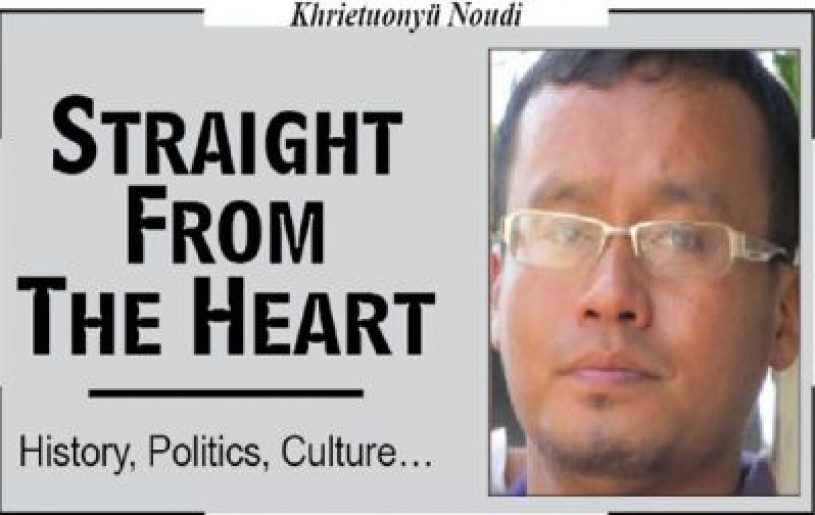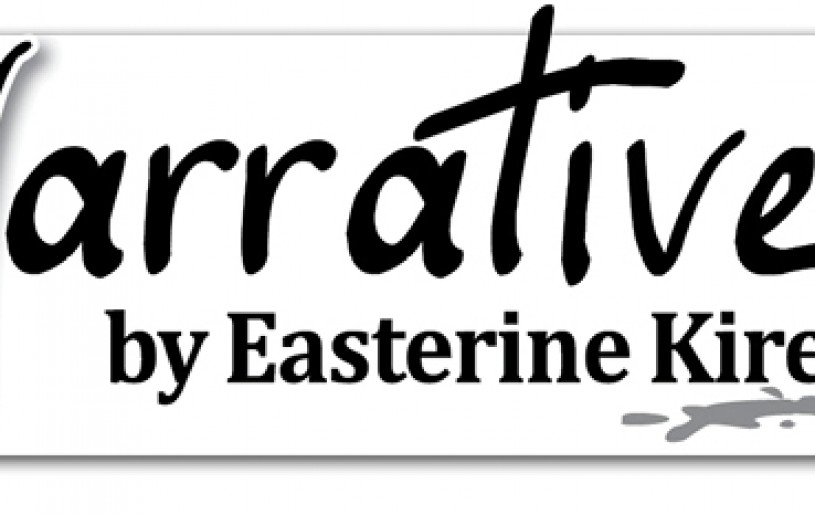
At a meeting with some of the most trusted senior leaders of the Angami and Chakhasang tribes on December 19, 2016, I made a presentation on our society’s need to have a statewide mandated body of elders serving as advisors or councilors to the Executive Branch of our Government. Of course, we were under no illusion that we could make that to happen on our own. At the same time, we also knew that we Nagas are in the habit of playing catch-up -- that is, slowly moving behind the fast-unfolding events within our society. Consequently, we are often left with only one option: to respond to situations after they have already occurred, instead of preparing ourselves ahead of time to shape future events the way we would want them to happen.
Like all other societies, Nagas are not without wise and matured elders. If we were to have a system in which some of these elders could be used to provide guidance for our society as in the past, I have no doubt in my mind that they would have prevented the recent tragic event from happening. Maybe, they would have put some sense into the heads of our State politicians from going against the public outcry or rushing into things. But all is not lost as long as we learn from our past mistakes and resolve to handle things the right way in the future.
As the recent social crisis has clearly revealed, many of our State politicians have a real disconnect with the public, because they have been living in their own “bubble of power” for too long. Hence, they are unable to understand the various undercurrent hotbeds and cultural issues facing our civil society today. Sure, they have advisors from the bureaucracy for guidance on governmental procedures and protocols. However, in regards to civil society issues, even these government officers are often very ignorant, if not clueless. For all these reasons, it is critical that we Nagas restore one of our fast-dying Naga customary practices, namely, the governance of our society under the guidance of a plurality of trusted elders.
Since the Nagas of Nagaland are given a special provision in Article 371A of the Indian Constitution, we may as well make the best use of it by adopting a bicameral system, which, in our case, could be a supreme council of wise elders representing all recognized tribes serving as in an “Upper House” (UH) alongside the Members of our Legislative Assembly. This, by the way, should not be understood as a replacement of our current Gaon Buras system which is designed to be grassroots-focused and subservient to the government, because they act as assistants to the Deputy Commissioners in village administration. Put it another way, Gaon Buras are appointed by law of the State government and not by the traditional institutions.
According to our Naga customary practices, statesmen-like elders were vested with authority by their own community members to govern the affairs of their villages; they alone could make decisions for the whole community; they alone had the right to determine punishment for erring community members; they had the exclusive privilege to make treaties with outsiders. Some of these traditional practices may still be worth emulating even today.
Or, in today’s context, perhaps we could use some of our highly regarded elders, who have no symptoms of partisanship or tribalism in their bones, to serve as members in an UH to perform the following functions: First, they could assume the patriarchal role in protecting our Naga nationhood, homeland, and birthrights. Second, they could serve as liaisons and negotiators for the various parties, especially when conflicts arise between the Naga customary laws and the Indian constitutional laws as in the recent case of ULB controversy. Third, they could be the spokespersons of our various tribes and help the civil societies to serve in sync with the various government agencies. Fourth, they could assist the Executive Head in determining the right candidates to be assigned the right portfolios, give regular inputs to the Members of our Assembly, and serve as checks by providing some sort of filters or breaks in all policy-making decisions, except on matters of the budget and the implementation of policies. This take-over of some responsibilities by the UH could immensely relieve the elected Representatives to focus on development and on the overall direction of the Naga people in our race for progress with the rest of the peoples in the world.
How are we going to choose the members of the UH? It could be, for example, through the use of an appointive system in which the potential candidates are selected by the representative leaders of the various sections within our tribes, instead of using a direct election method. Or, there could be still some other more suitable method(s) of selection or election which we may need to figure out. But whatever it is, may we turn our present crisis of institutional clashes into an opportune time for the building up of our social and political structures for a stronger and better society as a people.






